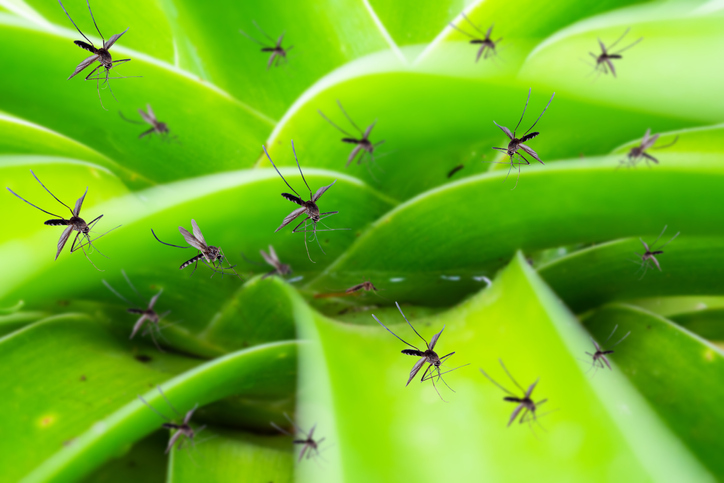When are Mosquitoes Most Active?
What Time of Day are Mosquitoes Most Active?
Mosquitoes are most active during the times of dusk and dawn, when the lower light levels and cooler temperatures create ideal conditions for their feeding behavior. During these periods, mosquitoes seek blood meals essential for egg production, primarily targeting humans and animals. It’s important to note that some species, especially those adapted to urban environments, can also be active and bite during the day. Understanding these peak activity times is crucial for effective mosquito prevention and control.
Understanding Mosquito Behavior: When Are They Most Active?
Understanding the times when mosquitoes are most active is not just a matter of convenience; it’s a crucial step in effective pest management and personal protection. This article delves into the intricacies of mosquito activity, shedding light on their peak times of activity and offering insights into how you can safeguard yourself and your family from these persistent pests.

Save $50
on your first recurring service today with code GET50
Time of Day: Dusk and Dawn Dominance
The behavior of mosquitoes, particularly their feeding habits, is intricately tied to the time of day. Understanding this aspect of their behavior is crucial for effective mosquito management and personal protection.

GET A PERSONALIZED QUOTE
To protect your home from pests, click here for a free pest control estimate. Our Orkin Pros will create a personalized pest treatment plan for your home or business
or Call (866) 249-0292
Dusk and Dawn: Prime Time for Mosquitoes
The periods of dusk and dawn are particularly significant in the life of a mosquito. These times offer a perfect blend of lower light levels and cooler temperatures, creating an ideal environment for mosquitoes to be active. During these twilight hours, mosquitoes emerge from their daytime resting places in search of food.
The quest for blood is driven by more than just hunger; it’s a critical part of the mosquito’s reproductive cycle. Female mosquitoes require the protein found in blood to develop their eggs. This means that the biting activity during these times is not merely a nuisance but a fundamental aspect of the mosquito’s life cycle. The blood meal is a necessity for the continuation of their species.
Variations in Mosquito Behavior
While dusk and dawn are the peak times for many mosquito species, it’s important to recognize that mosquito behavior can vary. Not all species adhere strictly to these times. Some mosquitoes, particularly those that are more aggressive or adapted to urban environments, can and do bite during the day. This diurnal activity is often observed in areas with dense mosquito populations, where competition for food is high, or in species like the Aedes mosquitoes, which are known to be active and bite during daylight hours.
In urban areas, the behavior of mosquitoes can be influenced by the availability of breeding sites and the presence of hosts. Urban-adapted species may exhibit more flexible feeding patterns, taking advantage of the availability of humans and pets throughout the day. This adaptation can lead to a higher likelihood of mosquito-human interactions, increasing the risk of mosquito-borne diseases in cities and densely populated areas.
Implications for Mosquito Control
Understanding that mosquitoes are most active during dusk and dawn can inform personal protective measures, such as using mosquito repellents or wearing long sleeves and pants during these times. For homeowners and community members, it underscores the importance of reducing mosquito breeding sites, especially before these peak activity periods.
Environmental Conditions
Temperature plays a significant role in mosquito activity. Mosquitoes are cold-blooded and rely on external heat sources to regulate their body temperature. They become most active when temperatures are above 68 degrees Fahrenheit, which is why mosquito presence is often more noticeable in warmer months. As temperatures rise, mosquitoes’ metabolism increases, leading to more active feeding and breeding.
Mosquitoes thrive in environments that support their life cycle. They need standing water to lay their eggs, which is why areas with stagnant water sources, such as ponds, marshes, or even small puddles, see higher mosquito activity. After rainfall, the increase in available breeding sites can lead to a surge in mosquito populations.
Additionally, mosquitoes prefer calm, windless conditions as they are weak flyers. High winds can significantly reduce their ability to navigate and find food. Humidity also plays a role; mosquitoes are more active in high humidity conditions, which help them stay hydrated.
Creating a Mosquito-Free Environment: Tips and Tricks
While Orkin professionals are always at your service, there are several steps you can take to minimize mosquito activity around your home:
- Eliminate Standing Water – Mosquitoes breed in stagnant water. Regularly check and empty any containers that can hold water, such as flowerpots, birdbaths, and gutters.
- Maintain Your Yard – Keep your lawn trimmed and bushes pruned. Mosquitoes use overgrown vegetation to rest during hot days.
- Use Screens and Nets – Ensure that window and door screens are intact to prevent mosquitoes from entering your home.
Orkin’s Role in Mosquito Management
At Orkin, we understand the importance of managing these pests not just for comfort, but also for health. Mosquitoes are carriers of various diseases, making their control a public health concern. Our approach is rooted in understanding their behavior and habitat, allowing us to offer effective solutions for both residential and commercial needs.
Despite taking these precautions, sometimes professional intervention is necessary. This is where Orkin steps in. Our trained experts use scientifically backed methods to manage mosquito populations effectively. We focus on treating the areas where mosquitoes breed and rest, providing a comprehensive solution to your mosquito problem.
Call Orkin for a Mosquito-Free Home
Don’t let mosquitoes take over your outdoor experiences. Contact Orkin for a consultation and take the first step towards a mosquito-free environment. Our expertise in pest control, combined with our commitment to customer satisfaction, makes us your best choice in the fight against mosquitoes.
Remember, the key to effective mosquito management is understanding their behavior and taking proactive steps to control their population. With Orkin’s help, you can enjoy your outdoor spaces without the worry of mosquito bites. Call us today and say goodbye to these pesky intruders!
Frequently Asked Questions
What time of day are mosquitoes most active?
Mosquitoes are typically most active during dusk and dawn. These periods offer lower light and cooler temperatures, ideal for their feeding habits.
Why are mosquitoes more active during dusk and dawn?
Dusk and dawn provide the perfect balance of conditions for mosquitoes – lower light levels and cooler temperatures. This environment is less stressful and more conducive to their feeding and breeding behaviors.
Can mosquitoes be active during the day?
Yes, some mosquito species, particularly those adapted to urban environments, are active and can bite during the day. Daytime activity is often observed in areas with dense mosquito populations.
Are there any times when mosquitoes are completely inactive?
Mosquitoes are generally less active during the hottest part of the day and in cold temperatures. They tend to seek shelter and become dormant when it’s too hot or too cold.
How can I protect myself from mosquitoes during their peak activity times?
To protect yourself during peak mosquito activity times, use insect repellent, wear long sleeves and pants, and avoid outdoor activities during dusk and dawn. Additionally, ensure your living spaces are well-screened to prevent mosquitoes from entering.
Does the time of mosquito activity vary by species?
Yes, the time of activity can vary depending on the mosquito species. While most are active during dusk and dawn, some species have different patterns and can be active during the day.
How does weather affect mosquito activity times?
Weather plays a significant role in mosquito activity. Warm and humid conditions often increase their activity levels, while cold temperatures can make them dormant.
What role does Orkin play in managing mosquitoes during their active times?
Orkin specializes in effective mosquito control strategies that target mosquitoes during their active times. This includes treating breeding sites and resting areas to reduce their populations and prevent bites.
Conclusion
Understanding the activity patterns of mosquitoes is more than just a matter of convenience; it’s a vital component of effective pest management and personal safety. The knowledge that mosquitoes are most active during dusk and dawn can significantly influence our daily routines and protective measures. By adapting our activities and taking preventive steps during these peak hours, we can greatly reduce the nuisance and health risks associated with these pests.
Professional services like those offered by Orkin can provide targeted, effective solutions for both residential and commercial properties.

FIND YOUR LOCAL BRANCH
To protect your home from pests, click here for a free pest control estimate. Our Orkin Pros will create a personalized pest treatment plan for your home or business
or Call (866) 249-0292

